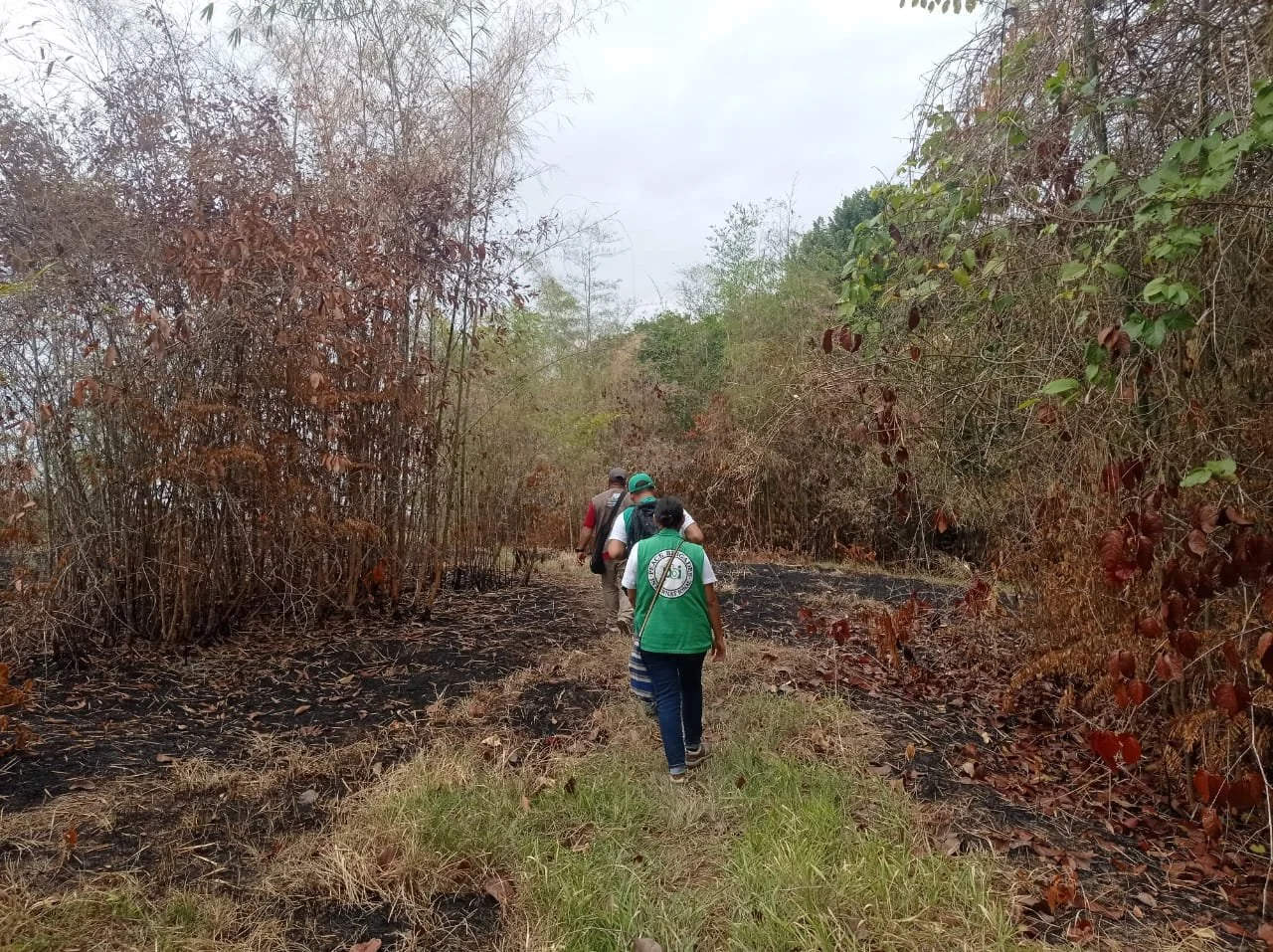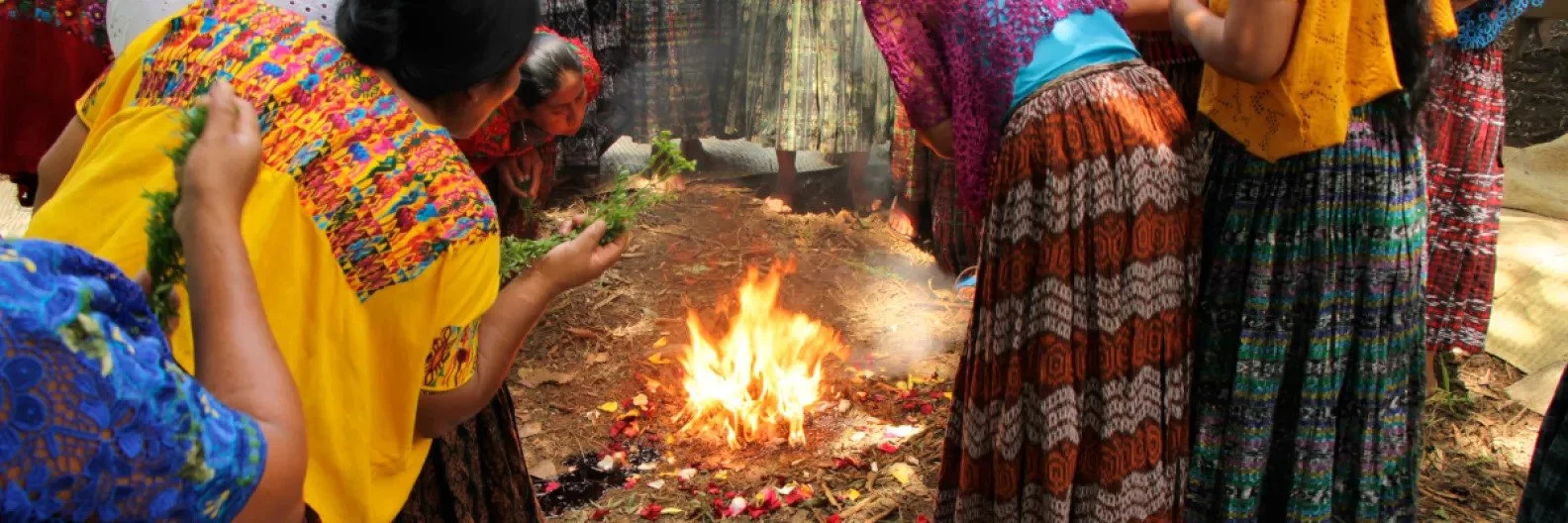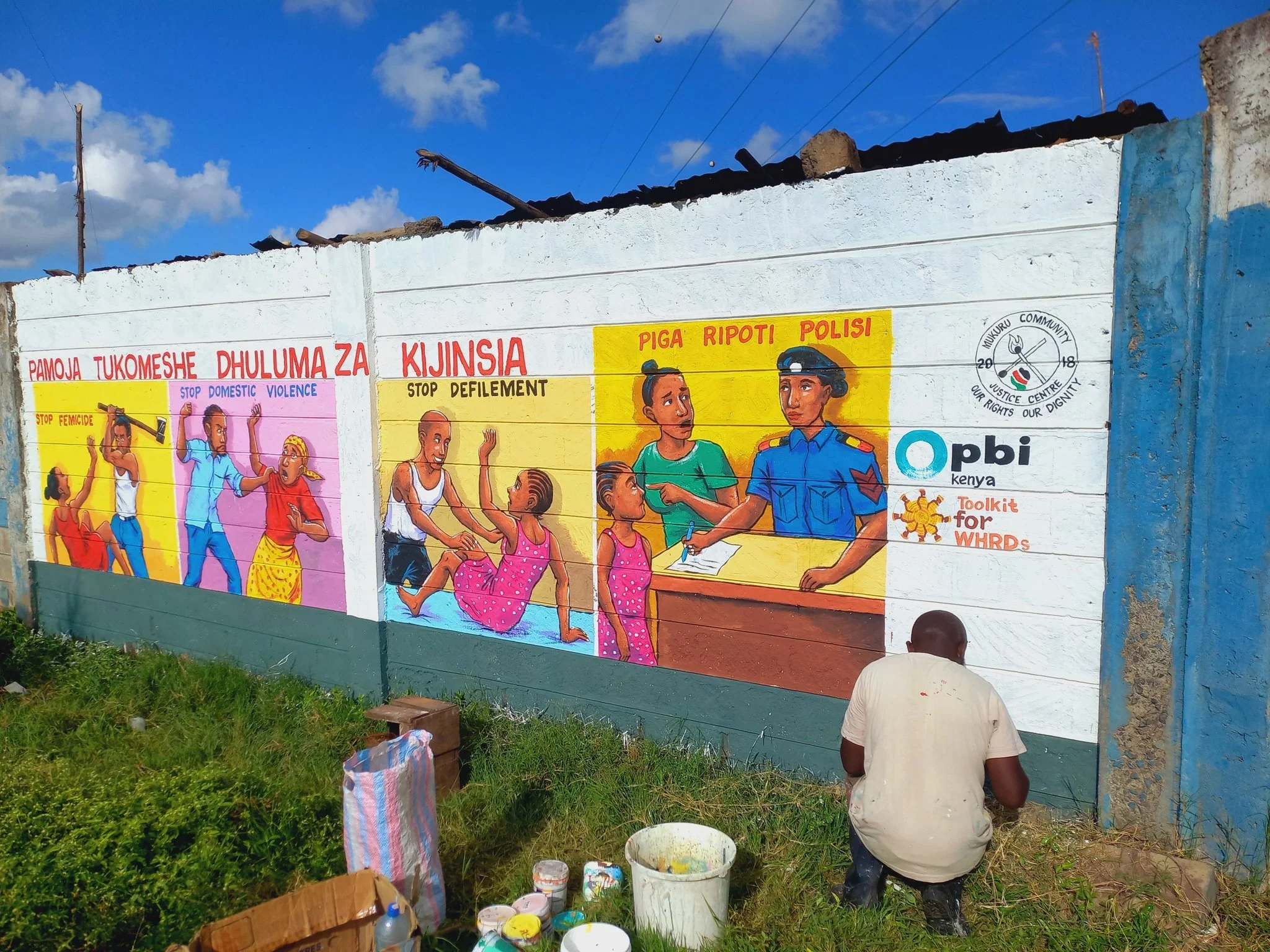How Defenders are Changing the World for the Better
Oct 2025
Across the world, human rights defenders are achieving powerful victories; advancing justice, protecting rights, and defending both their communities and our planet. Over the past year, we’ve witnessed inspiring progress. Here, we share four stories of solidarity, resilience, and hope.
PBI accompanying a CREDHOS in an environmental observation mission in the San Silvestre marshlands, a part of the Magdalena Media river basin, 2023
Colombia: Landmark recognition of the Magdalena River
In a historic decision, Colombia’s Magdalena River has been recognised as a victim of the armed conflict. This recognition paves the way for stronger environmental protections and renewed efforts to locate victims of enforced disappearance.
This outcome followed years of advocacy by PBI-accompanied organisations — Regional Cooperation for the Defense of Human Rights (CREDHOS), the José Alvear Retrepo Lawyers Collective (CAJAR), and the Peasant Association of the Cimitarra River Valley (ACVC)— who argued that the river had suffered immense harm due to violence, pollution, and exploitation. PBI’s protective presence has enabled defenders to safely collect testimonies and ensure that the voices of victims are heard in court.
These organisations successfully argued to the court that the river has suffered numerous damages in relation to the armed conflict, including the dumping of dead bodies in its waters, oil spills, and pollution due to the use of glyphosate in fumigation of coca plants. Paramilitary groups were known to use the river to hide evidence of their crimes, including assassinations, forced disappearances, and torture. Over 320 bodies have been found in the river since 1982, and many more are likely still in its waters.
PBI regularly provides protective accompaniment to CREDHOS and the ACVC in their field work to collect testimonies from victims in the region. The collection of testimonies is dangerous work, as much of the region is still under the control of illegal armed groups. PBI’s accompaniment is critical in offering protection in these visits, so that the voices of those most affected by the region’s violence can be heard and taken into account in the court’s final decisions.
Guatemala: Healing at the heart of protection
In Guatemala, the TZK’AT Network of Ancestral Healers is transforming the way communities defend themselves — through healing. Supported by PBI, the network has brought ancestral healing into the core of community protection, reaching more than 1,000 women across the country.
As Lorena Cabnal of TZK’AT explains, “Strengthening women defenders continues to defend life and human rights.” Their work shows that healing is not separate from activism — it is part of it.
Over the last year, ancestral healing (“Sanación”) for social movements has gone from a niche practise to an integral part of holistic self-protection strategies of communities and organisations across the country thanks to the tireless work of TZK'AT - Network of Ancestral Healers of Territorial Community Feminism from Iximulew.
In 2015, 10 women human rights defenders from different regions of Guatemala founded TZK'AT. The Network brings together Indigenous women working to defend human rights, natural resources and land with a history of political persecution, stigmatisation, death threats, political displacement, criminalisation, and prosecution as a result of their work as rights defenders. It arose from the need of many women defenders to share the pain caused by what they describe as a patriarchal political, economic and social system that displaces them from their territories, oppresses and exploits them. TZK'AT’s approach is to put healing at the heart of comprehensive protection and community action.
To date, PBI and TZK'AT have held over 40 healing workshops, with a total participation of more than 1,000 women. A direct result of this work has been the building of alliances between Indigenous women accompanied by PBI and TZK'AT, and the construction of collective protection strategies such as a self-protection network across Indigenous territories. Other groups have now begun to replicate ancestral healing methodology, in an alliance with TZK'AT based on what they learned in the meetings.
"Thanks to PBI, we have been able to continue strengthening healing as the first measure of comprehensive protection for women defenders. PBI's approach to supporting healing encounters has been very wise, as strengthening women defenders continues to defend life and human rights. PBI's contribution is a contribution of love for life" - Lorena Cabnal, TZ'KAT Network of Ancestral Healers of Territorial Community Feminism from Iximulew.
“Strengthening women defenders continues to defend life and human rights.”
Lorena Cabnal, TZ'KAT Network of Ancestral Healers of Territorial Community Feminism
PBI Kenya facilitated a mural message development forum in the urban settlements of Kawangware, Kibera, and Mathare with Human Rights Defenders (HRDs). The main issue highlighted was gender-based violence.
Kenya: Women leading the fight against femicide
In Kilifi, Kenya, women defenders are challenging harmful traditions and leading the fight against femicide. Among them is Ruweida Muhammad, Executive Director of Desire Youth Initiative, whose advocacy for women’s rights and safety has begun to shift attitudes within her community.
With PBI’s support, Ruweida has gained vital security training and joined networks of women defenders, giving her the tools and confidence to lead public advocacy and mentor others. “The culture of silence is breaking,” she says — a testament to the power of solidarity.
In the conservative community of Kilifi, where harmful traditional practices like Female Genital Mutilation (FGM) are deeply rooted, Ruweida Muhammad, Executive Director of Desire Youth Initiative, is leading a courageous movement for change. “I advocate for freedom from violence against women and girls in Kilifi, as well as sexual and reproductive health rights”, she says.
Her advocacy has not been without risk. In a culture where unmarried Muslim women are expected to be silent on such issues, Ruweida has faced a community backlash, threats, and even family rejection. “It’s not easy. People say I’m dishonouring our traditions,” she explains. This is where PBI has played a transformative role.
“PBI helped me understand risk management and how to continue my work safely. Most importantly, they made me realise I’m not alone,” she says. With this support, her confidence and reach have grown significantly. She has participated in peaceful demonstrations against femicide, spoken openly in mosques about reproductive health, and held dialogues with community leaders.
When a femicide case rocked Kilifi recently, Ruweida was among the first to mobilise a public response. “Before, I would have hesitated out of fear. Now, I know how to protect myself and my team.” Her advocacy has yielded visible results. She’s noted growing community support, including from chiefs and religious leaders who once dismissed her work. Mosques have begun welcoming her to speak, and parents now invite her to schools to speak to girls about bodily autonomy and safety. “The shift in attitude, even among some elders, shows we are making progress,” she says.
Thanks to the partnership with PBI, Ruweida now operates with greater safety, support and sustainability. She continues to expand her work while mentoring young women in her community. “The culture of silence is breaking,” she reflects. “And I know that with the right support, we can protect even more girls.”
Nepal: Planting the seeds of gender justice
In Nepal, PBI and local partner COCAP are helping women defenders and community members to promote gender equality and combat violence. Through training, peer learning, and community discussions, defenders are transforming awareness into action.
From village halls to classrooms, these conversations are sparking lasting change. “These moments aren’t headlines,” one participant shared, “they are revolutions in our villages.”
PBI’s team in Nepal recently shared the following story from a woman human rights defender from a Muslim Community who is a member of a Peer Learning Network run by PBI and local organisation COCAP. We have reproduced part of the text below:
Women Human Rights Defenders who are part of the Peer Learning Network, led by PBI partner Collective Campaign for Peace(COCAP), many of them survivors of human rights violations.
“I still remember the way the air hung heavy that afternoon in Khadak Municipality-5, Saptari. The monsoon rain had stopped just hours before, and the smell of wet earth mixed with the scent of sweat and chai as we arranged chairs under the tin-roofed community center. I was nervous - would anyone come? Would they speak?
But they did. One by one, 53 women and men farmers, mothers, shopkeepers, students filed in, wiping their feet and nodding cautiously. We were hosting a discussion on gender equality and violence against women. A topic people often whispered about but rarely confronted in public.
We, the Peer Learning Network, had trained for this - supported over the years by PBI and COCAP, in legal literacy, digital security, trauma counseling, and the art of listening. That day, as I stood to speak, I didn’t feel like the shy, scared girl I once was. I was a human rights defender.
We spoke of the law- not as something distant and foreign, but as a tool in our own hands. We talked about the bruises that don’t show, about the silence that kills, and about how change starts not in the courts but around kitchen fires and market stalls.
In Kalaiya, Bara district, a similar fire was lit. I watched teenagers; girls with hijabs and boys in dusty uniforms who lean forward as we talked about how gender roles shape their lives. The classroom felt charged, alive. One student said, “I never knew I had the right to say no.
These moments matter. They're more than meetings. They're turning points. And we see the change: more women attending local meetings, youth reporting harassment, families questioning dowry practices. These aren’t headlines, but they are revolutions in our villages.”
At PBI, we stand in solidarity with those who risk everything to defend human rights and the environment. For over 40 years, we have provided life-saving support to activists and organisations facing grave threats in some of the world’s most dangerous regions, so that they can make lasting change in their communities, countries and globally.
With your continued support for PBI, defenders can keep changing the world.




